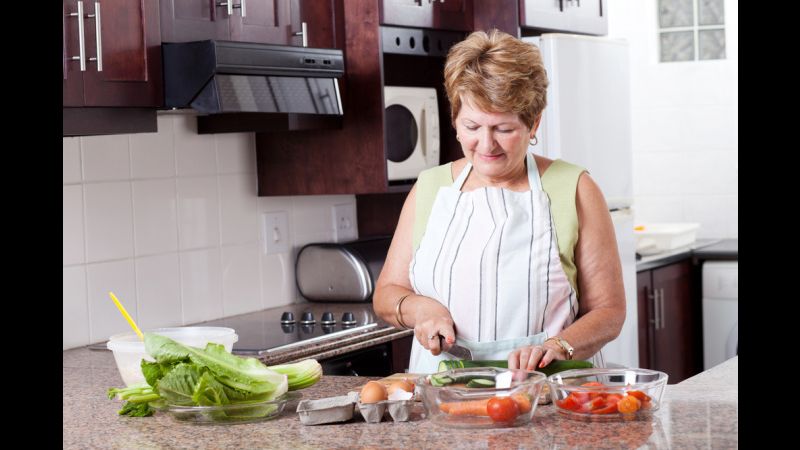A kitchen is at the center of a homes’ activity – great for cooking, chatting, cleaning, and family meetings. Filled with the comfort of cooking food, familiar smells, and memories of happy family gatherings, kitchens are the heart of a home.
However, for senior citizens, the kitchen can hold the potential for many safety hazards. The kitchen can seem an intimidating space for senior citizens struggling with mobility problems, cognitive decline, and other health issues. Knives, heating elements, complicated appliances, and even a dishtowel on the ground can create a dangerous medical situation for seniors.
Most seniors want to remain in their own homes, independent and free of the constraints and financial burdens of an assisted living facility or nursing home. The hazards of the kitchen do not need to force seniors to give up their independence. Simple precautions can be taken to help reduce the risks found in the kitchen.
Safety Precautions in the Kitchen
Start with Illumination – all work areas in the kitchen should have ample lighting. Consider adding under cabinet lights to add additional lighting to prep and cooking surfaces.
Clutter-free – eliminate the excess in the kitchen. Keep surfaces clear, especially the floor. Falls are the leading cause of injury deaths for seniors over 65, and clutter on the floor creates a high-risk situation.
Clean up Spills – any spill should be wiped up immediately to prevent a possible fall or slip. Staying on top of little messes will make your kitchen a much safer place, especially for seniors with limited mobility, or those who use a cane, walker, or wheelchair.
Store Heavy Items Below Waist Level - you have much less control of an object when you have to reach up to it. Avoid the risk of a falling appliance by storing them on lower shelves.
Countertop Appliances – Store your most frequently used appliances (like a coffee maker) on the countertop. Especially heavy appliances, like a stand mixer (if used frequently), are much safer if stored on the counter. However, all appliances should be unplugged while not in use.
Properly Store Knives – all knives should be stored in a block, to avoid accidental cuts. If you or someone in your home is suffering from a cognitive disease, like dementia, you may consider the safety precaution of storing knives in a locked drawer.
Always Close Cabinet Doors – a simple as it sounds; being diligent about closing cabinet doors can greatly reduce injuries sustained in the kitchen. Even when unloading the dishwasher, always close the cabinet doors.
Don’t Store Chemicals or Cleaning Products in the Kitchen – keeping chemicals separate from food items helps decrease the chances of accidental poisoning.
Turn Pot Handles Inward – while cooking on the stovetop, ensure that all of the pot handles are positioned inward, toward the back of the stovetop. This helps decrease the chances of a pot being pulled off the stove - spilling the boiling contents.
Don’t Wear Loose Clothes While Cooking – loose clothes can catch on cabinet hardware, pull a pot off the stove, or even catch fire over an open flame. Properly fitted clothing is highly recommended.

